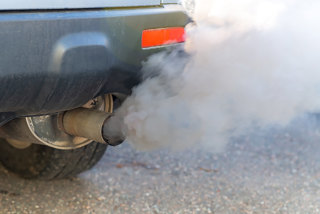EU environment ministers have agreed a less ambitious cut to average CO2 emissions for cars and vans than hoped by the European Parliament.
Average CO2 emissions of new passenger cars registered in the EU will have to be 15% lower in 2025 and 35% lower in 2030, compared to the emission limits valid in 2021.
For vans, the European Council maintains the targets as proposed by the European Commission: 15% in 2025 and 30% in 2030. These are EU wide fleet targets. The CO2 reduction effort will be distributed among manufacturers on the basis of the average mass of their vehicle fleet.
The European Parliament had previously voted to cut average CO2 emissions from new cars and vans by 40% by 2030, with 35% of registrations to be ultra-low emission vehicles by that time.
MEPs said they also wanted to lower CO2 emissions 20% by 2025.
The Council agreed to adjust the Commission proposal on an incentive mechanism for zero- and low-emission vehicles such as fully electric cars or plug-in hybrid vehicles as regards passenger cars. The benchmark for cars for 2030 was raised to 35%.
The Council also agreed a specific incentive for manufacturers to sell zero- and low-emission cars in markets with a low market penetration of these vehicles. It says that there is a more favourable weighting for newly registered passenger cars in member states where the share of zero- and low-emission vehicles is below 60% of the EU average.
For vans, the Council agreed to leave the Commission proposal unchanged.
In response to the decision by EU environment ministers to set 2030 CO2 limits for cars and vans at 35% below 2021 levels, Morten Thaysen, clean air campaigner at Greenpeace, said:
“The IPCC made it very clear just this week that we’re now playing catch up to limit the irreversible damage from climate change and salvage a future for our children.
“At the first hurdle, EU ministers have failed to rise to the challenge with an agreement incompatible with efforts to keep climate warming to 1.5 degrees.
“Transport remains one of the few sectors where carbon emissions continue to grow, so the car industry doesn’t have long left to make the switch to cleaner electric cars.
“If the sector is to stay within its carbon budget to meet 1.5 degrees, new car sales in Europe must be diesel and petrol free by 2030.”
A final decision is not expected before December.






















Login to comment
Comments
No comments have been made yet.